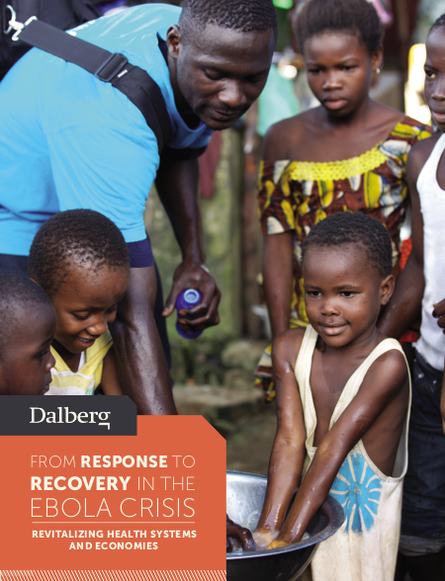Revitalizing Health Systems and Economies

lnerabilities and disparities in the health systems of the hardest-hit West African countries. Poor and rural communities in Liberia, Sierra Leone, and Guinea bore the brunt of the epidemic; their populations have been more likely to fall sick and less likely to recover. As Liberian President Ellen Johnson Sirleaf noted, Ebola exposed the “inequitable health outcomes” that stem from limited health care options for the poor. This inequity must end—both to avoid a scenario of “endless Ebola”2 in which the disease becomes a permanent fixture in West Africa, and also to prepare for inevitable future health system shocks. We need to act now to build resilience: the preparedness to address the unexpected.
This report explores specific ways to seize this opportunity for change. We examine what has worked to mitigate Ebola’s spread and why, with an eye towards enabling permanent solutions to take root from emergency measures. In the coming pages we detail some of the critical inputs to long-term resilience as well as the role of the private sector— specifically small- and medium-sized enterprises and financial innovation—in accelerating recovery from the outbreak’s manifold effects.
Links
Resource collections
- COVID-19 Response Collection
- Learning from crises
- UN Habitat - Urban Response Collection
- Urban Response - Urban Crisis Preparedness and Risk Reduction
- Urban Response Collection - Community Engagement and Social Cohesion
- Urban Response Collection - Economic Recovery
- Urban Response Collection - Environment and Climate Change
- Urban Response Collection - Housing, Land and Property
- Urban Response Collection - Urban Crisis Response, Recovery and Reconstruction
- Urban Response Collection - Urban Resilience